Strengthening protections in unregistered alternative provision
Feedback updated 1 Sep 2025
We asked
We published a consultation on strengthening protections in non-school alternative provision. It asked for feedback on the government’s proposals to introduce:
- time-limits on the duration of placements in non-school alternative provision settings
- a strengthened role for local authorities in the quality assurance of non-school alternative provision
- new national standards that would be applicable to all types of non-school alternative provision
You said
We received 308 responses from non-school alternative providers, schools, local authorities, parents or carers of children who have been placed in non-school alternative provision settings, and others with an interest in this subject. A full analysis is included in the government’s response to the consultation.
We did
The consultation response recognises that many local areas already demonstrate strong practice in commissioning and overseeing non-school alternative provision. The measures announced are designed to build on that good practice and ensure greater consistency and high standards across the country. The measures include:
- the introduction of new mandatory national standards for non-school alternative provision, with voluntary standards and guidance published now to support local areas in testing and embedding these arrangements ahead of legislation
- a clear expectation that placements in non-school alternative provision should be time-limited, focused on re-engaging children with education, and preparing them for successful transitions back into school
- a strengthened role for local authorities, who will be responsible for quality assuring provision against the new standards, while schools will ensure that placements meet individual needs
We encourage local authorities to work with schools and providers to begin implementing and testing the new voluntary standards. This will support a smooth transition when the standards become statutory. To support implementation and gather feedback, we will be holding a series of engagement events in the autumn. These sessions will provide an opportunity to explore the proposals and voluntary standards in more detail and share good practice. Any local authorities, schools or providers who would like to participate in those events can contact us at UnregisteredAP.Consultation@education.gov.uk.
Overview
The Department for Education is consulting on proposals to strengthen protections for children in unregistered alternative provision settings.
This consultation is the next step in delivering on the government’s commitment to improving experiences and outcomes for children in unregistered alternative provision and builds on the findings from our previous Call for Evidence “Understanding the Use of Unregistered Alternative Provision”, the findings of which have helped shape this consultation.
We are seeking views on proposals which position unregistered alternative provision as an intervention, not a destination, to complement education in school.
We propose that all unregistered alternative provision will be subject to new proportionate quality assurance frameworks, underpinned by national standards.
We believe that, if implemented, this approach will deliver a balanced and proportionate pathway to protect the children that this diverse sector supports and educates.
Why your views matter
The findings from this consultation will help us take the necessary steps to improve the use, quality and oversight of unregistered alternative provision.
Audiences
- Academies (including free schools), voluntary aided schools, voluntary controlled schools, foundation schools and community schools
- Adoptive parents
- Adult and mental health practitioners
- Bodies representing schools and local authorities
- CAMHS
- Clinical commissioning groups
- Community representatives
- Designated safeguarding leads
- Directors of children's services
- Educational Psychologists
- Employers
- Foster carers
- Governing bodies and academy trusts
- Government bodies and departments
- Governors
- Headteachers
- Health visitors
- Independent specialist colleges
- Local authorities
- Parents
- Principle social workers
- Pupils
- School business managers
- School nurses
- School support staff
- SENCOs
- Service managers
- Social workers
- Social workers
- Teachers
- Team managers
- Those evaluating programmes for children in need
- Those involved in underlying theoretical research on abuse and neglect, child development etc
- Those researching children’s social care or education systems, with links to educational outcomes of Children in Need
- Training providers
- Unions and representative organisations
- Virtual school heads
- Volunteers
- Young people
Interests
- Academies
- Accountability
- Admissions
- Advocacy (Looked after children)
- Alternative provision
- Attendance and absence
- Behaviour and discipline
- Care leavers and former looked-after children
- Careers guidance
- Disabled children
- Education
- Equality
- Establishing maintained schools
- Financial support (Looked after children)
- Friends and family care
- Governance
- Health and wellbeing
- Health and wellbeing (Looked after children)
- Intervention
- Keeping children safe in education and other settings
- Key stage 1
- Key stage 2
- National Curriculum
- Participation of young people in education, employment and training
- Performance tables
- Planning
- Preventing neglect, abuse and exploitation
- Procurement for schools
- Programmes and initiatives (Looked after children)
- Pupil data
- Pupil place planning
- Raising the participation age
- Safeguarding disabled children
- School and academy funding
- School funding reform
- SEND code of practice
- Social workers' standards
- Statutory policies and guidance
- Sufficiency
- Support in education
- Teachers' standards
- Teaching and learning (SEND)
- Training and development
- Travel to school and colleges

Share
Share on Twitter Share on Facebook